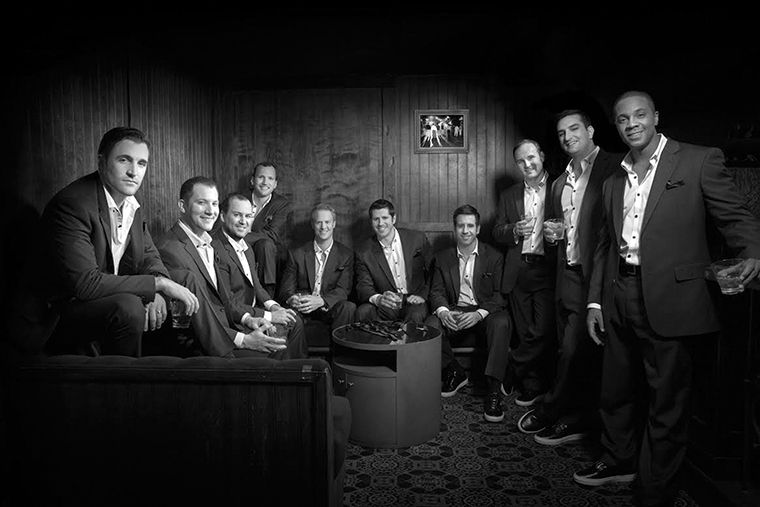Group’s dynamic vocals enlivens holidays
Straight No Chaser
December 14, 2015
What began as a way to meet girls and fulfill class requirements became a career-long endeavor for the men of world-renowned a capella group Straight No Chaser. The 10-piece ensemble, which began as a collegiate project at Indiana University, has achieved massive success, including performances on “Late Night with Jimmy Fallon” and the release of five studio albums. Founding member and baritone David Roberts, a Chicago resident, spoke with The Chronicle about the group’s history, what to expect from SNC’s two-show stop in Chicago and what it’s like to be an a capella group in today’s musical landscape.
THE CHRONICLE: How did Straight No Chaser come together?
DAVID ROBERTS: We started at IU. The founding members were all part of [choral group] Saint Hoosiers and [some were] music majors. As a requirement, we had to be in a choir, and the director and founder of SNC Dan Ponce said he wanted to create an a capella group at Indiana University. Some of the other schools, like University of Illinois, University of Michigan and [others] as you go east [already had] collegiate a capella groups, and there wasn’t one at IU. The goal was just to start a legacy, try to sing for girls and [eat] free food. We started a group, and when we graduated, we auditioned new members and left it at the university. Then in 2007, Randy [Stein] posted some stuff on YouTube from a concert when we were students, and that snowballed into getting signed by Atlantic and now having music careers.
What is your favorite arrangement to perform live?
We do a couple of songs in the show that are mash-ups. I don’t want to give too much away, but we close the show with one of them where we mash up two of the biggest songs in the past 20 years. It’s a lot of fun to see the expression on people’s faces when we start and then go into the second one. To hear the response is a lot of fun. That’s what’s exciting about what we do. We have a platform to take some of our favorite songs and greatest tunes of all time and mash them together and come up with a creative new presentation of them.
How has the reemergence of the a capella genre affected your success?
There’s an expression that “rising tide floats all boats.” We definitely have benefited. We didn’t sign [with Atlantic records] until 2008, and I think that was around the first season of “Glee” and “The Sing Off,” and I think we got really lucky that the timing was exactly representing the market’s desire for more vocally authentic music. It was the market speaking its opinion.
What is it like to perform in Chicago?
It’s always fun to do a show in your hometown or where you’re living. Obviously, living in Chicago, I have a lot of friends and family [coming to shows]. Irrespective of our living there, the audiences in Chicago are some of our strongest audiences. They’re always really enthusiastic. I don’t think it matters that I live there, as much as that the reception we get there is fantastic by itself. Add the level that I know a lot of the people, and it makes it that much sweeter.








